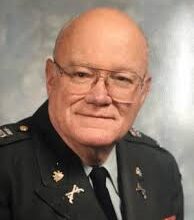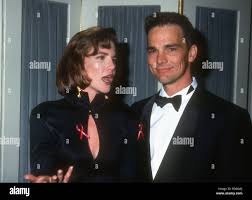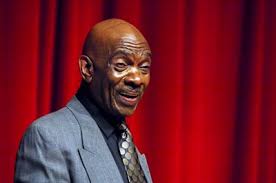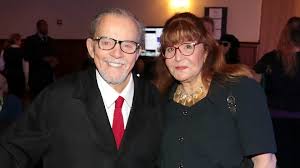Richard Boone: Hollywood’s Legendary Antihero
The Versatile Career of Richard Boone

Richard Boone, a name synonymous with American television and film, is celebrated as one of the most iconic actors of the 20th century. Best known for his role as Paladin in Have Gun – Will Travel, Boone’s commanding presence and gravelly voice cemented his place in Hollywood history as a pioneer of the antihero archetype. His career, spanning four decades, showcases an exceptional range of talent and an enduring legacy that continues to inspire.
The Early Life of Richard Boone
Born on June 18, 1917, in Los Angeles, California, Richard Boone came from a distinguished lineage. He was a direct descendant of Daniel Boone, the legendary American pioneer. Raised in a middle-class household, Boone’s early life reflected a mix of privilege and struggle. He attended Stanford University, but his academic journey was short-lived. Instead, he pursued various jobs, including oil drilling and bartending, before finding his passion for acting.
A Military Man Turned Actor
Before stepping into the limelight, Boone served in the U.S. Navy during World War II. His experiences in the Pacific Theater profoundly shaped his worldview and later influenced his performances, particularly in roles that demanded grit and authenticity. Post-war, Boone utilized the G.I. Bill to study at the prestigious Actors Studio in New York, where he honed his craft under the guidance of legendary acting coaches.
Breaking Into Hollywood
Richard Boone’s Hollywood debut came in 1950 with Halls of Montezuma, a war film that highlighted his natural ability to command attention. Throughout the 1950s, Boone became a familiar face in films and television, earning acclaim for his intense and often brooding performances. His breakout role, however, came with the medical drama series Medic (1954–1956), where he played Dr. Konrad Styner. The series showcased his versatility and earned him an Emmy nomination.
The Phenomenal Success of Have Gun – Will Travel
Boone reached the pinnacle of his career with the western series Have Gun – Will Travel. Airing from 1957 to 1963, the show introduced audiences to Paladin, a sophisticated yet rugged gunslinger for hire. Boone’s portrayal of Paladin was groundbreaking, blending intelligence, wit, and moral complexity. The role earned Boone two Emmy nominations and established him as a television superstar.
A Versatile Artist Beyond Acting
Richard Boone was more than just an actor; he was a true artist. A talented painter, he often exhibited his work in galleries, revealing another facet of his creativity. Additionally, Boone ventured into directing, helming several episodes of Have Gun – Will Travel and other projects. His passion for storytelling extended beyond the screen, as he was also a voracious reader and collector of books.
Collaboration with John Wayne
Boone’s friendship with John Wayne was legendary. The two appeared together in multiple films, including The Alamo (1960), Big Jake (1971), and The Shootist (1976). Their on-screen chemistry and mutual respect reflected their off-screen camaraderie. Boone’s performances in these films further solidified his reputation as a dependable and charismatic actor.
Pioneer of the Antihero Archetype
One of Richard Boone’s most significant contributions to television was his portrayal of morally complex characters. As Paladin, he challenged the conventional notions of heroism, embodying a blend of intelligence, strength, and ethical ambiguity. This archetype paved the way for modern antiheroes in television and film, influencing generations of storytellers.
Personal Life and Philanthropy
Boone’s personal life was as vibrant as his career. He was married three times and had one son. Known for his generosity, Boone often supported charitable causes, particularly those benefiting Native American communities, a culture he deeply admired. His multilingual abilities, including fluency in Spanish and Mandarin, reflected his curiosity and respect for diverse cultures.
Later Years and Legacy
In the 1970s, Boone relocated to Florida, where he continued to act sporadically while enjoying a quieter life. Despite battling throat cancer, he remained active in the industry until his death in 1981 at the age of 63. His ashes were scattered over the Pacific Ocean, a fitting tribute to a man who had left an indelible mark on Hollywood.
Why Richard Boone’s Legacy Endures
Richard Boone’s impact on the entertainment industry is undeniable. His pioneering roles, artistic versatility, and commitment to authenticity have made him a lasting figure in the annals of television and film. As a trailblazer of the antihero archetype and a consummate artist, Boone’s contributions continue to resonate, inspiring both audiences and actors alike.
Conclusion
Richard Boone’s journey from a World War II veteran to a Hollywood legend is a testament to his talent, resilience, and passion. His work, especially in Have Gun – Will Travel, remains a benchmark for excellence in storytelling and performance. Boone’s legacy serves as a reminder of the transformative power of art and the enduring appeal of complex, multifaceted characters.



